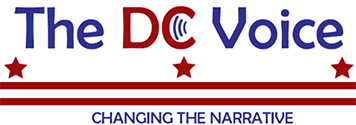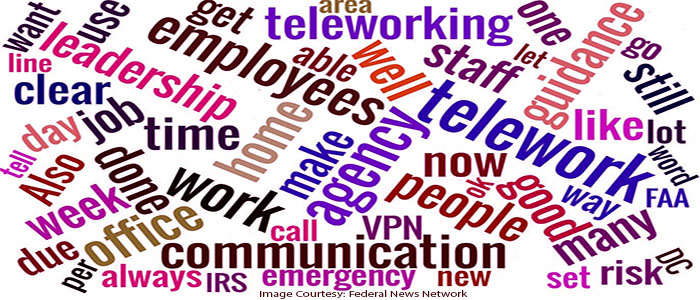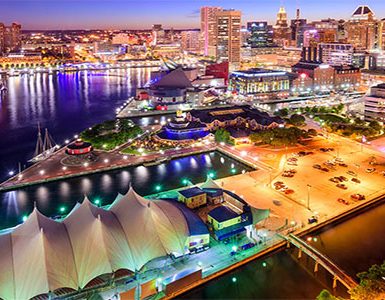In July, all the White House staffers are coming back to work. But will they be in their offices as much as they were before the pandemic? And what about the many federal agencies in the District? What is the future of work for government employees?
Federal workers will have hybrid workplaces under Biden’s administration. What does this mean?
Across many industries, the coronavirus crisis gave rise to hybrid workplaces that blend office and home-based working options. Last month, Google workers were told they can keep working from home through September 2021. The company is gradually adopting a hybrid system that blends new and existing office locations with a strong work-from-home model.
The Biden administration is encouraging federal agencies to follow suit. This will change the whole concept of a federal job. Today’s federal job candidate might like to work from the D.C. suburbs, or even in a cabin overlooking the Shenandoah River. And why not? As it happens, West Virginia is paying remote workers to move there.
Some departments have already given employees the option to work from remote computers at least several days a week. The Department of Agriculture instituted a hybrid policy in its 2021 workplace, noting that flexible work choices attract a wide range of talented people to the agency.
Will federal jobs become more gig-like?
Overall, the Biden administration’s approval of remote work is poised to change things for more than 2 million federal employees nationwide, and the massive workforce engaged in contract work for the government. The American Federation of Government Employees is the main union for federal workers. So far, it seems OK with the shift to a more flexible workforce.
But this is something to watch. Let’s not forget what happened when the U.S. Postal Service got flexible, mainly to compete with Amazon for the home delivery business. The USPS brought on a tier of lower-paid workers to deliver all week — Sundays included. The spreading workweek signified a major change for the work-life balance of the post office worker. If an Amazon-like culture spreads throughout federal jobs, flexibility could be a two-edged sword.
So far, though, it seems most employees welcome the Biden administration’s stance. And many managers believe the people who worked non-stop during the pandemic by any means necessary should get the working conditions they want. Evolution to a permanent hybrid workplace is inevitable. The challenge is to keep it fair, and not to cut costs at the expense of employees.
Is a flight to suburbia underway?
The real estate used by the federal government started to shrink even before the pandemic. We can expect the trend to continue. Yet not all members of Congress are on board with giving workers the hybrid life. Some workers are not fully performing their duties when they’re working remotely, a few Congress members are saying. One of several agencies they’re pointing to is the Internal Revenue Service, which is dealing with a backlog of mail and phone messages that heaped up during the pandemic. Other departments are scrambling to clear backlogs and get people back to offices, so they can once again offer in-person meetings with the people they serve.
Not all work can be carried out online. Veterans’ medical care, for example, is a hands-on job. But the clerical work involved with veterans’ benefits could see a gradual shift to remote administration. With the right technology in place, the Department of Veterans Affairs, the Internal Revenue Service, and Social Security Administration could all perform administrative duties online. Over time, that’s likely to happen, as technology continually steps up.
Zoom is a model of remote tech that is continuing to advance beyond its pandemic popularity. With new offerings like Zoom Phones and Zoom Rooms, the company is showing its expectation that the hybrid workplace will be the future of work, across the country and internationally.
So, back to the question of how D.C. will change…
Many D.C. workers are in the District because it’s the seat of government — not because they must be present in person for people in D.C. Employees who are expected to meet in person with the public are already located at their agencies’ many field offices around the country.
Will there be a government employee flight out of D.C. and into suburbia and beyond? We now have reason to think it could happen in the weeks, months, and years ahead.
Supporting Resources
Lisa Rein: Biden Administration Moves Toward Making the Pandemic Work-From-Home Experiment Permanent for Federal Workers (May 24, 2021). Originally published by the Washington Post [paywall]: https://www.washingtonpost.com/politics/federal-employees-working-from-home/2021/05/23/73c34304-b8db-11eb-a6b1-81296da0339b_story.html [Non-paywall at the San Diego Union-Tribune]: https://www.sandiegouniontribune.com/news/nation-world/story/2021-05-24/biden-administration-moves-toward-making-the-pandemic-work-from-home-experiment-permanent-for-many-federal-workers
Jane Recker for the Washingtonian: New Federal Rules Expanding Telework Could Dramatically Change Daily Life in D.C. (May 25, 2021). Available at: https://www.washingtonian.com/2021/05/25/new-federal-rules-expanding-telework-could-dramatically-change-daily-life-in-dc/
Rob Lenihan for The Street: Google to Allow More Staff to Work Remotely (May 5, 2021). Available at: https://www.thestreet.com/investing/google-to-allow-more-staff-to-work-remotely


















Add comment